Feature
Gaétan Jarry: Royal relations
Share this
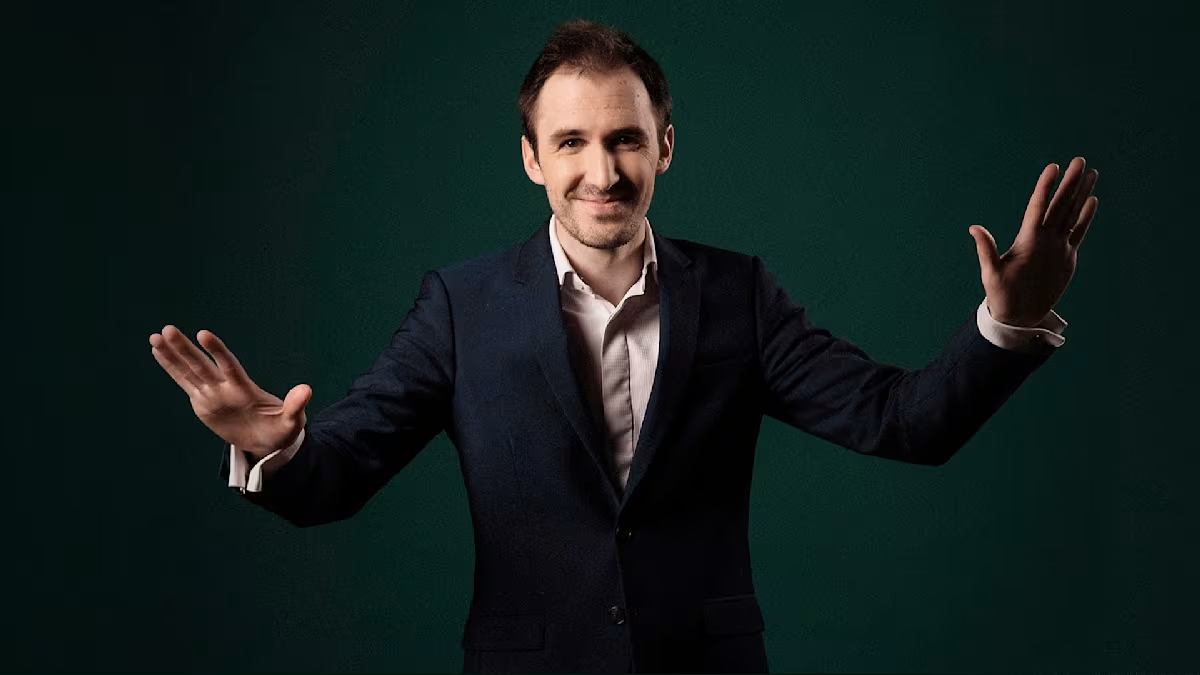
BY ASHUTOSH KHANDEKAR | FIRST PUBLISHED 8 OCT 2025
French conductor Gaétan Jarry and his Versailles-based ensemble Marguerite Louise, will be making their UK debut in London with the Choir of New College, Oxford, uniting French and English Baroque traditions in music that celebrates royal splendour and devotion.
This November, the London Festival of Baroque Music, in partnership with Continuo Foundation, welcomes the French conductor Gaétan Jarry and his ensemble Marguerite Louise, who will be making their UK debut at Smith Square Hall in Westminster. Jarry, 39, has become a significant figure in France over the past decade, particularly at the Opéra Royal and Chapelle Royale at Versailles, where he has revived Grands Motets and sacred works composed for Louis XIV. He founded Marguerite Louise in 2011, naming the ensemble after Marguerite-Louise Couperin – one of the first women permitted to sing in the royal chapel at Versailles, and cousin of François Couperin.
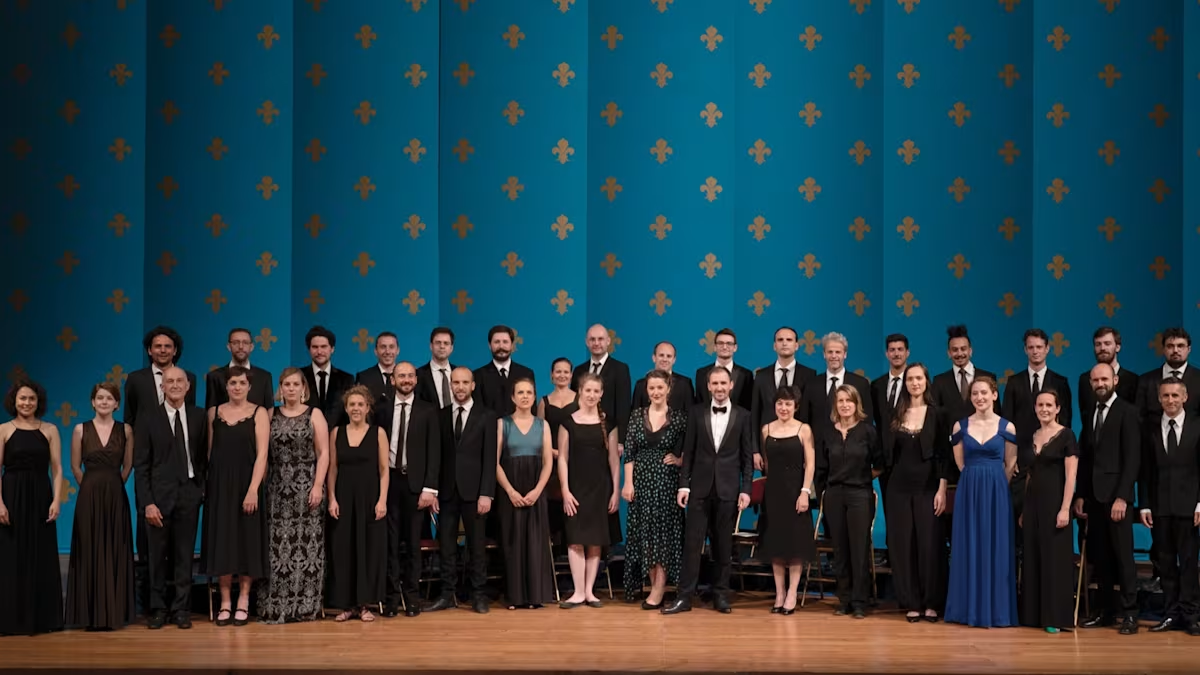
Joining Jarry and his ensemble for their tour will be the Choir of New College, Oxford and their music director Robert Quinney. The French and British ensembles will explore musical traditions that once defined ceremonial and spiritual life on both sides of the Channel.
On 8 November, Jarry and Quinney will together direct ‘Royal Farewells and Triumphs’, a programme that brings together Lalande’s De profundis (written for the funeral of Marie-Thérèse, wife of Louis XIV, and later reused at several royal ceremonies), Purcell’s Music for the Funeral of Queen Mary, Charpentier’s Te Deum, and Purcell’s My heart is inditing. Jarry says: ‘I wanted to highlight the symbolic role that choral music played in the royal courts of the late 17th century. In both England and France, music was emblematic of royal power and status. These works are monuments, yes, but they are also deeply human, speaking of sorrow, joy and hope.’

Unlike in Britain, where choral traditions evolved in an unbroken thread from the 15th century to the present, the violent rupture of the French Revolution led to the loss of an entire cultural legacy. ‘The Revolution cut off the head of the king and it also silenced the music of the court,’ Jarry observes. ‘Much was destroyed. Even the organs were dismantled, their pipes melted down for weapons. Only those that could be used for revolutionary music survived.’ What remained of the musical traditions of the court was forgotten. Recovering this lost heritage is central to Jarry’s work with Marguerite Louise, and his mission runs deep, instilled in him from childhood.
An extract from Charpentier’s De Profundis, from Marguerite Louise’s album, Motets pour une princesse. This album explores some previously unrecorded motets by Charpentier alongside works for organ by his near contemporary, Jacques Boyvin.
Jarry was born in Mont-de-Marsan, in the southwest of France, where his father was stationed as a fighter pilot. His upbringing was far from military, however. His earliest memories are of the extraordinary scent of the pine trees of the Landes, and the sound of music filling his home:
‘As far back as I can remember, the first musical notes that reached me were those of my dad’s flute. He would play for several hours on weekends. My mother accompanied him a little on the piano, my brothers also played the flute and the cello, so there was music constantly around me. And then on Sundays we went to church where my father also played the organ. I was a bit of a hyperactive child. The only place where I was calm was sitting on the bench of the small organ next to my father. I pretended to play along with him.’
An extract from Charpentier’s chamber opera, Les arts florissants, which Gaétan Jarry recorded with Ensemble Marguerite Louise in 2018.
When the family moved to Versailles, Jarry’s musical journey took a decisive leap, thanks to the organist of the Church of St Joan of Arc, Francis Roudier: ‘He was a man of profound kindness and generosity. We were allowed to go up to the organ gallery at the end of the services. The place was fascinating – I wanted to stay up there for hours in that smell of wood and incense, with that organ, those mountains of scores… One day Francis lifted me up on to the organ bench. I must have been six years old, a tiny figure in this immense church. He told me I could play... I did, and the experience never left me!’
At home, Jarry created an organ of his very own: ‘I had installed a small keyboard in the kitchen bread bin with its rounded lid. Under my chair, I placed the bread-cutting board, which had wooden slats (to catch the crumbs) and looked like an organ pedalboard. Above my setup, I opened a large book with photos of organs, and there I imagined myself to be the organist of Saint-Gervais in Paris… which actually happened, providentially, 15 years later!’
Teachers and mentors in Versailles began to point him in the right direction: ‘At the Versailles Conservatory, I met a very important person: – my teacher, Frédéric Désenclos, who probably became the keystone of my musical career. His refined, supple, and extraordinarily well-structured playing was, for me, a kind of musical ideal. He was my mentor for nearly 10 years. I also met another key figure, Jean-François Frémont, choirmaster of Notre Dame de Versailles, whose musical intelligence, combined with his awareness of spiritual transcendence, was a determining factor in my life.’
Meanwhile, conducting had become another fascination: ‘When I was little, I would pretend to conduct whenever I listened to a record, using makeshift sticks – knitting needles, Meccano rods, a magician’s wand from the magic box. Later on, though, what really motivated me was the desire to perform with others, rather than sitting alone behind the keyboards of an organ in a dark church at three in the morning!’
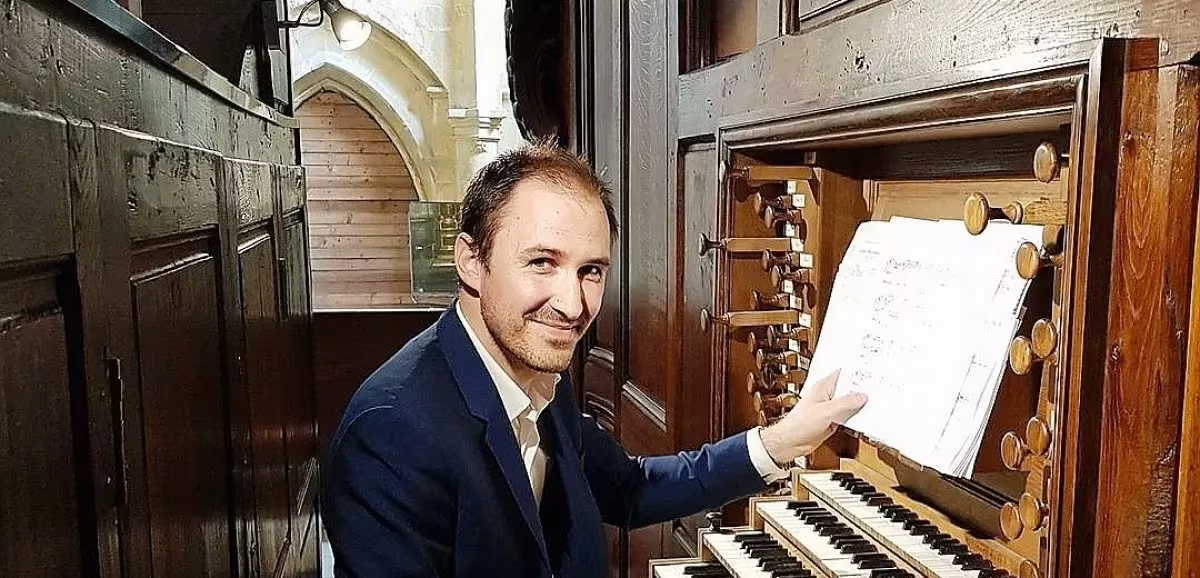
This urge to collaborate led to the creation of Ensemble Marguerite Louise. The name carries a special significance: ‘Marguerite-Louise Couperin was the first cousin of François Couperin, a magnificent singer acclaimed in her time, and for whom Couperin wrote music whose poetry, sweetness, and sensuality I have never encountered elsewhere. I often joke that I fell in love with her! Perhaps it was the few pages of music written for her that determined all my inspiration for what followed.’
A soprano closer to home also inspired the young Jarry: ‘When I was 12 years old, I had a recording of the opera, Les arts florissants by Marc-Antoine Charpentier, performed by William Christie’s ensemble of the same name. My cousin Agnès Mellon sang the role of La Musique. Her voice was of a limpid clarity, almost girlish, without a shadow of artifice. Her naturalness was so touching that I could listen to her first aria on repeat. Since then, the question of ‘naturalness’ in the voice has always been something very important to me in my work.’
‘Que mes divins concerts’ - La Musique’s aria from Charpentier’s Les arts florissants | Agnès Mellon, Les Arts Florissants & William Christie
At the London Festival of Baroque Music, women’s voices will come to prominence in Marguerite Louise’s programme on 7 November, when Jarry and his ensemble present a late-night, candlelit concert, ‘Les Demoiselles de Couperin’, centred on François Couperin’s Troisième leçon de ténèbres. These Holy Week settings, written for female voices, offer an intimate glimpse into the devotional life of Versailles and the role played by women. Jarry points to Lalande’s use of female soloists as a striking innovation in Versailles’s musical life. The composer’s two daughters, along with Marguerite-Louise Couperin herself, were notable pioneers.
The partnership with the Choir of New College, Oxford, with its boy trebles and countertenors, explores a different aspect of choral heritage: ‘Every choir has its own traditions, its own sound. But the essentials are the same everywhere – listening, breathing together, giving life to the text. When English choirs sing French music, I sometimes have to say: “Moins! Plus retenu!” – more restrained! When French singers perform Purcell or Blow, I sometimes have to ask for more energy, more expression. It’s like looking into a mirror: you see the difference between two cultures, but also how much they have shared and borrowed from each other.’
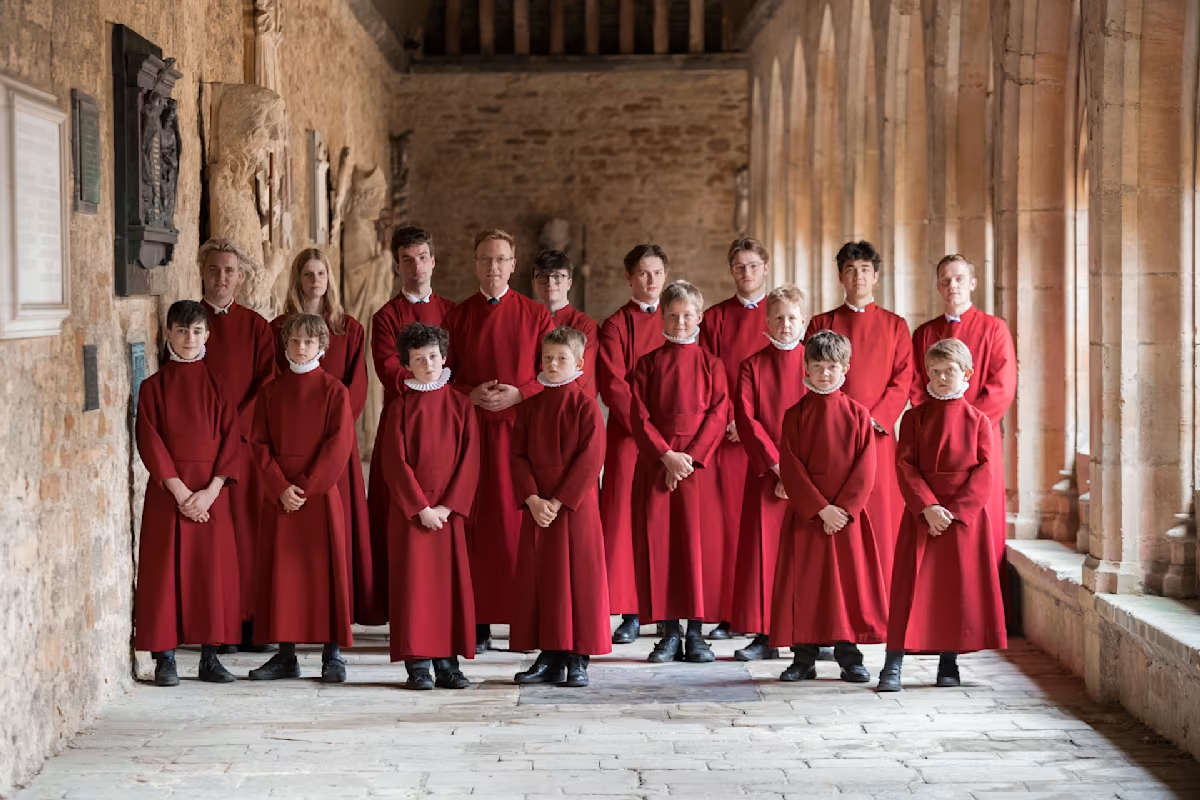
Jarry points the way to some of the highlights for audiences who may be unfamiliar with this repertoire: ‘The first notes of the Lalande’s De profundis always give me shivers. They are so solemn, so profound. And in Charpentier’s Te Deum – well, a lot of people will know the Prélude as the Eurovision theme, but the full work is overwhelming in its joy. To hear that after the funeral pieces will be very powerful.’
His hope for the British audience is simple. ‘Above all, I want them to be moved. If they leave feeling that this music still speaks to us directly, and that it connects rather than divides us, then I will be happy.’
Tickets for the London Festival of Baroque Music at Smith Square Hall, including Les Demoiselles de Couperin (7 November, candle-lit late-night performance) and Royal Farewells and Triumphs (8 November), are on sale. The company will also present two daytime concerts on 8 & 9 November: a family programme, When the Royal Trumpets Sound, and The Sense of Baroque: When the Royal Trumpets Sound, a concert for deafblind persons and accessibility professionals.
Share this
Keep reading
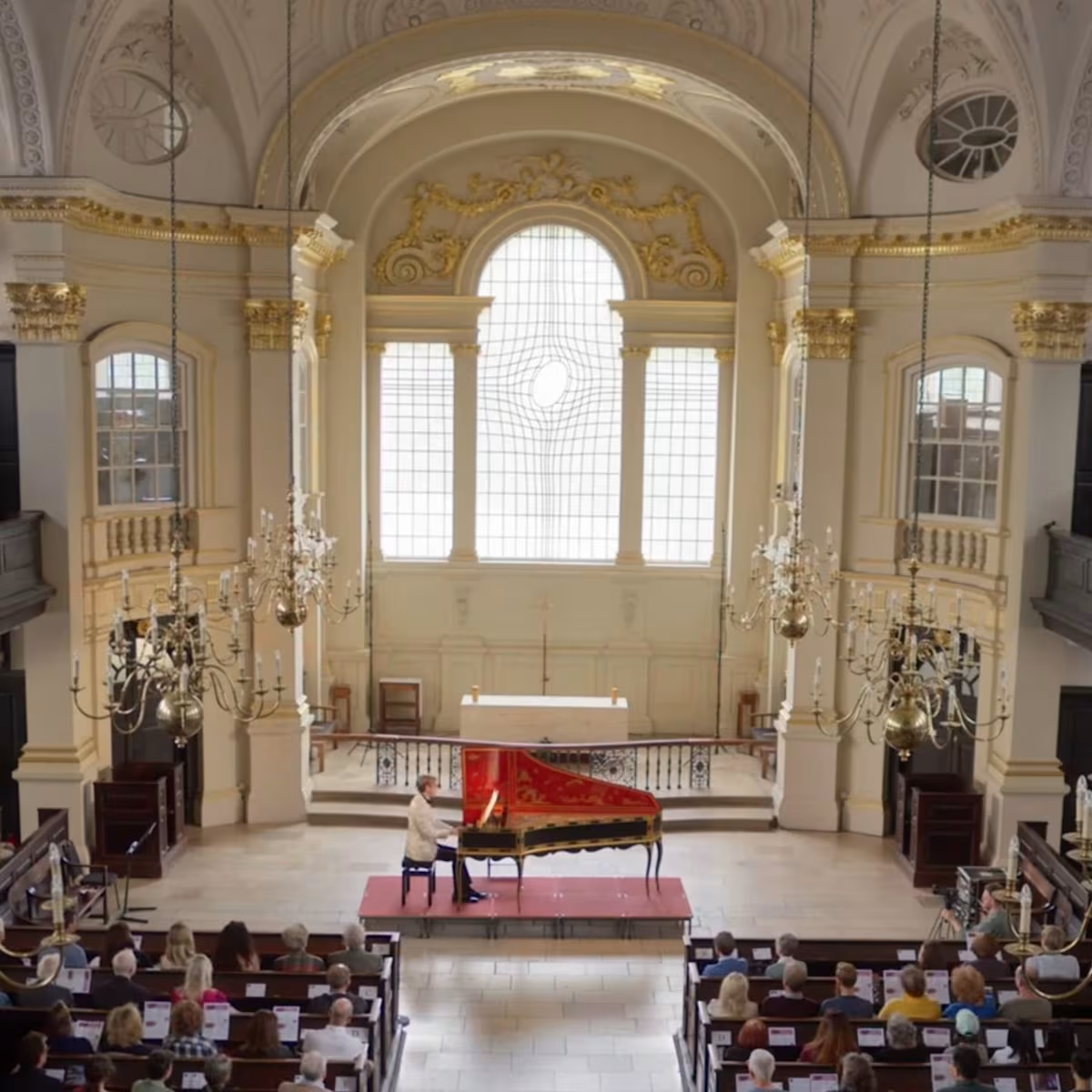
Nathaniel Mander: Bach’s Goldberg Variations
Haprsichordist Nathaniel Mander introduces and performs Bach’s monumental ‘Goldberg Variations’, 12 July 2024 at St Martin in the Fields, London.
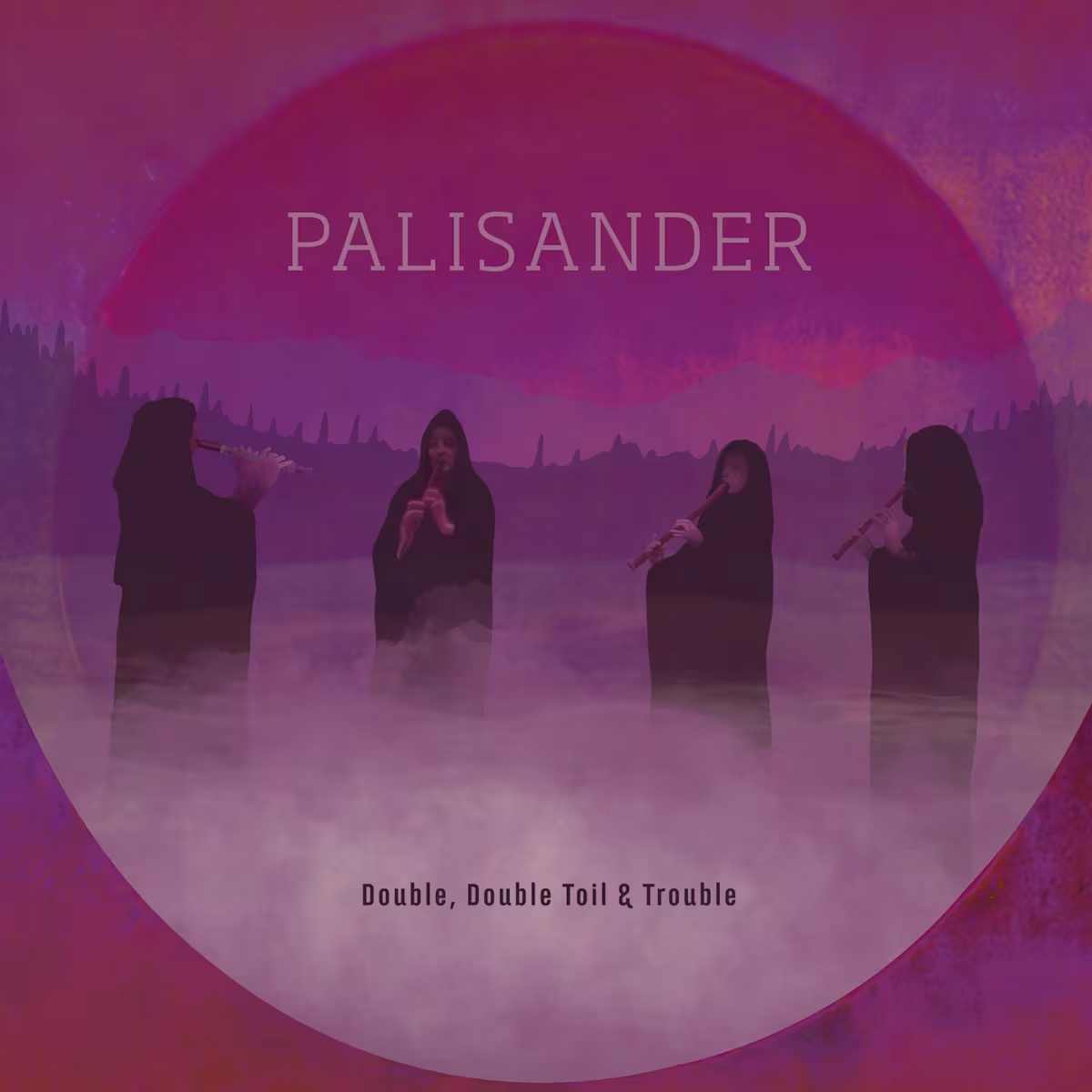
Double, Double Toil & Trouble | Palisander
Palisander’s new album, Double, Double Toil & Trouble, features repertoire spanning 900 years, inspired by the mystical and magical.
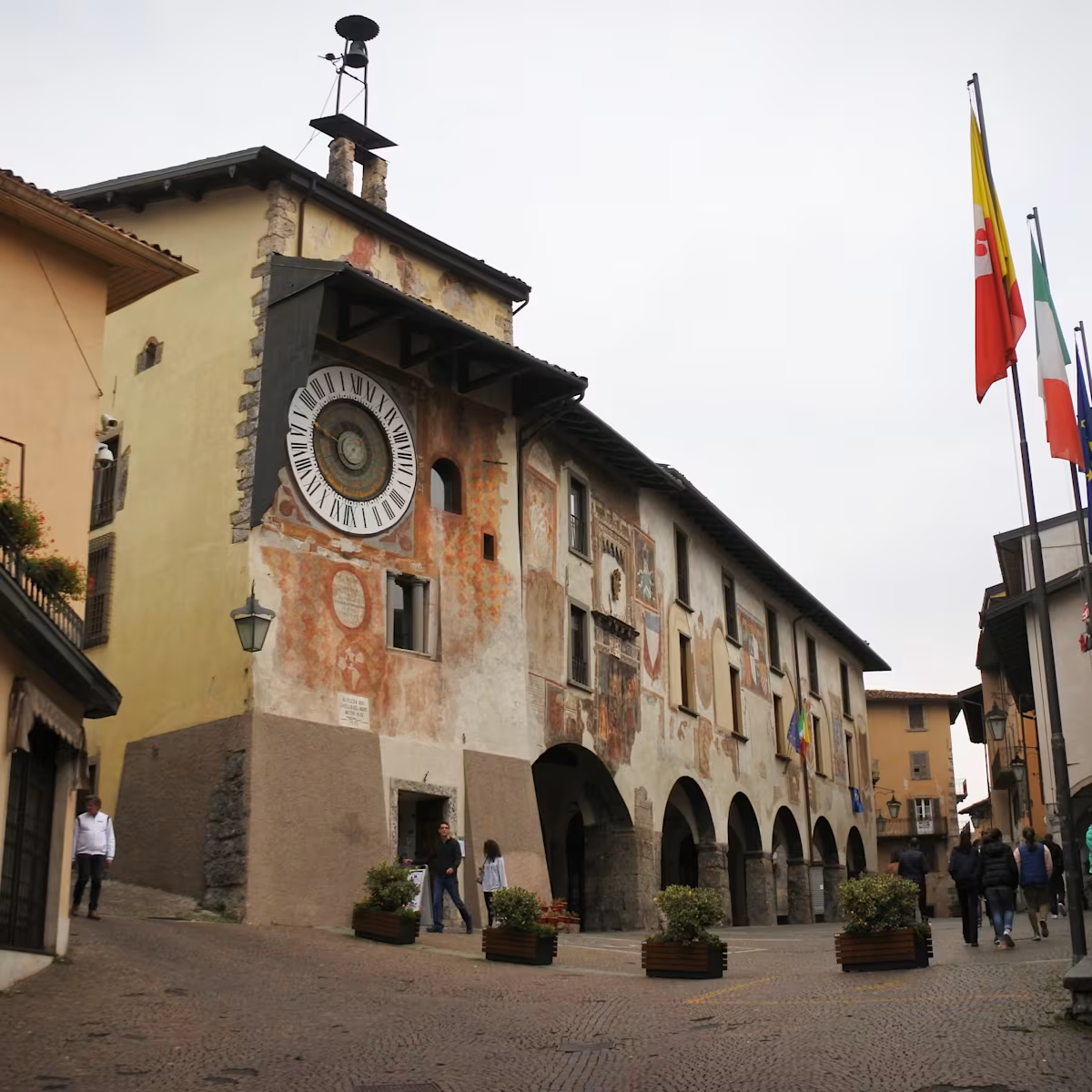
Legrenzi: A forgotten genius full of surprises
In the town of his birth, the Musica Mirabilis ‘Giovanni Legrenzi’ Festival revives the legacy of a composer who links Renaissance polyphony with Baroque drama.




